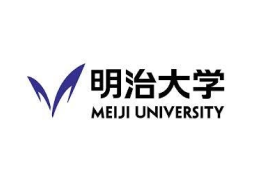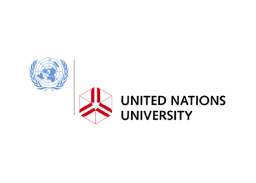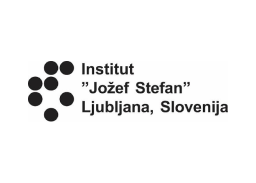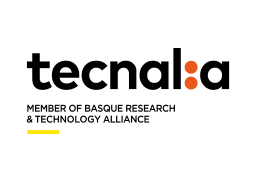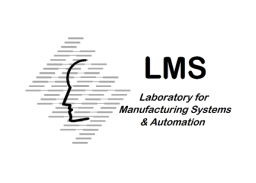MINDS & SPARKS GmbH (M&S) (Coordinator)
Research & Innovation Department
MINDS & SPARKS (M&S) is an independent, non-profit research organisation based in Vienna, Austria fostering science, innovation and technology to address major challenges and develop new methods and solutions for a better society. M&S creates strong connections between science and society using interdisciplinary approaches, promoting best practices and raising awareness on research and innovation achievements. Furthermore, the organisation focuses on improving the sustainability of research and innovation outcomes especially of public-funded projects to ensure that spent resources lead to permanent positive impacts for the society as a whole.
M&S is formed by a team of highly skilled personnel which holds many years of experience in designing, leading and implementing research and advisory projects, where the primary goal is to deliver strong value and support at national, European and international level. Likewise, it hosts development consultants and technical engineers which have broad knowledge along the development cycle of technical solutions and which are able to implement a variety of web-based solutions like online awareness hubs, interactive platforms, smart marketplaces, or community-driven networks. The organisation is involved to various research and innovation stakeholder networks including research organisations, academic institutions, civil societies, NGOs, governments, and industry in various sectors such as manufacturing, safety and security, health and care, energy and environment as well as information and communication technologies.
MEIJI UNIVERSITY (MEIJI)
Department Centre for Business Information Ethics
Meiji University is a private non-profit University located in Tokyo, Japan. The Centre for Business Information Ethics (http://www.kisc.meiji.ac.jp/~ethicj/e-about.htm), a research centre within the University, will be the primary participant in the Project. The Centre was established in 2006 under the leadership of Prof. Kiyoshi Murata, who remains its director. Dr. Andrew Adams has been associated with the Centre since 2007 and has been Deputy Director since 2010. The Centre has expertise and conducts research in law, ethics, economics and other social sciences. Its projects involve collaboration with Japanese and international academic and commercial/industrial partners on the social, legal and ethical implications of developments in digital technologies. The Centre focusses on empirical social science using questionnaire surveys, interviews and focus group approaches as well as legal and economic analyses.
The Centre will focus in the project on identifying and connecting with Japanese commercial and industrial organisations with the potential to produce and/or make use of AI in the manufacturing sector and whose business can benefit from creating or strengthening international links in these areas.
UNITED NATIONS UNIVERSITY (UNU)
Institute for The Advanced Study of Sustainability
The United Nations University Institute for the Advanced Study of Sustainability (UNU-IAS) is a research and teaching institute dedicated to realising a sustainable future for people and our planet. Based in Tokyo, Japan, UNU-IAS serves the international community by producing evidence-based knowledge and solutions to inform policymaking and address priority issues for the UN system.
Through policy-oriented research and capacity development the institute drives progress in three thematic areas: biodiversity & society, water & natural resources, and innovation & education. UNU-IAS creates new value by integrating expertise across these areas, in both academia and policymaking, to mobilise knowledge for sustainability. It applies advanced research methodologies and innovative approaches to challenge conventional thinking and develop creative solutions to emerging issues of global concern. The institute’s research, education, and training engage a global network of scholars and partner institutions, driving interconnectedness between policymakers and the science and academic communities to realise sustainable solutions. Through field-based research, including an operating unit in Kanazawa city (Ishikawa prefecture, Japan), UNU-IAS is developing models for localising the Sustainable Development Goals and other global agendas by building multi-stakeholder partnerships.
UNU-IAS postgraduate education advances the broader transformation towards sustainability in society — producing the policymakers and researchers of tomorrow, who will be at the forefront of global efforts for sustainability. The institute offers master’s and doctoral degrees, postdoctoral fellowships, and innovative short courses, in close collaboration with leading universities in Japan and other countries.
Thematic Areas
1. Biodiversity & Society
UNU-IAS advances the sustainable use of biodiversity and ecosystems to secure their benefits for current and future generations, focusing on sustainable landscape management approaches. It contributes to implementation of the Post-2020 Global Biodiversity Framework, applying evidence-based research on Socio-Ecological Production Landscapes and Seascapes (SEPLS) and other effective area-based conservation measures (OECMs). As the secretariat of the Satoyama Initiative, UNU-IAS mobilises efforts by 271 member organisations across the globe towards societies in harmony with nature. Through technical and institutional capacity development activities, the institute supports Parties to the Convention on Biological Diversity in applying landscape approaches and promoting multi-stakeholder engagement.
2. Water & Resource Management
Through policy-oriented research, UNU-IAS is transforming water management, promoting a decarbonised, circular economy, and enhancing resilience through decentralised natural resource management. Developing an integrated water resources management (IWRM) approach, the institute promotes smart, innovative, and community-based sustainable water management by strengthening research collaboration between local researchers and practitioners to explore alternative water resources. UNU-IAS research contributes to policy dialogue at the global level, including the UN World Water Development Report, as well as regional and local level action and development planning.
3. Innovation & Education
UNU-IAS accelerates and mainstreams knowledge generation and learning for a sustainability transformation, through policy-oriented research, capacity development, and partnerships. It advances the global ESD for 2030 agenda to engage learners of all ages in building more sustainable societies and achieving the SDGs, with a focus on inclusive education and ICT. In doing so, UNU-IAS mobilises its networks at the global and regional levels, including the Regional Centres of Expertise (RCEs) on ESD, and the higher education alliance Promotion of Sustainability in Postgraduate Education and Research Network (ProSPER.Net), as well as close partnerships with other UNU institutes and UN agencies.
An Institute of the United Nations University
UNU-IAS is an institute of the United Nations University (UNU) with a specific mandate to address sustainability issues. UNU is a global think tank and postgraduate teaching organisation comprising 14 institutes, located in 12 different countries. Its mission is to contribute, through collaborative research and education, to efforts to resolve the pressing global problems of human survival, development and welfare that are the concern of the United Nations, its Peoples and Member States. In carrying out this mission, UNU works with leading universities and research institutes in UN Member States, functioning as a bridge between the international academic community and the United Nations system. As part of the UN family of organisations, UNU maintains close working relationships with other UN agencies, programmes, commissions, funds and convention secretariats.
JOŽEF STEFAN INSTITUTE (JSI)
Artificial Intelligence Laboratory
Jožef Stefan Institute is the leading research institution for natural sciences in Slovenia having over 900 researchers within 25 departments working in the areas of computer science, physics, and chemistry and biology. JSI will be involved with the three strongly interrelated entities working closely on Artificial Intelligence research, development, dissemination and training:
(1) Artificial Intelligence Laboratory having approx. 40 researchers, is one of the largest European research groups working in the areas of machine learning, data mining, language technologies, semantic technologies and sensor networks. The key research direction is combining modern statistical data analytic techniques with more semantic/logic-based knowledge representations and reasoning techniques with the purpose to progress in solving complex problems such as text understanding, large scale probabilistic reasoning, building broad coverage knowledge bases, and dealing with scale. AILAB has been involved in more than 100 international research projects.
(2) International Research Center on Artificial Intelligence under auspices of UNESCO is the first UNESCO international research center on AI that has been recently established at JSI. IRCAI has currently 12 researchers that address global challenges related to AI and global challenges that can AI can help solving. One of the first service developed by IRCAI is http://coronaviruswatch.ircai.org/.
(3) Centre for Knowledge Transfer in Information Technologies has approx. ten researchers and technical staff working in the areas of research results dissemination and eLearning. In particular, the centre is well known by its leadership on open education through the UNESCO Chair on Open Technologies for OER and Open Learning, open education service VideoLectures.NET with multimedia open learning materials on different scientific fields, Open Education for a Better World program with more than 120 global open education projects.
FUNDACION TECNALIA RESEARCH & INNOVATION (TECNALIA)
TECNALIA is a benchmark research and technological development centre in Europe and a member of BRTA (Basque Research and Technology Alliance). With 1,400 experts -249 PhDs- from 29 different nationalities, it focuses on transforming technology into GDP to improve people’s quality of life, by creating business opportunities for companies. Its main scopes of action are aimed at the following topics: advanced manufacturing, digital transformation, energy transition, sustainable mobility, health and urban ecosystem. In Europe, TECNALIA has consolidated its position as the first private organisation in Spain in project contracting, participation and leadership under the European Commission’s HORIZON 2020 programme, in partnership with 110 Basque companies and 175 more from the rest of Spain. TECNALIA is a member of EARTO, organization linking together the most important research and technology organizations (RTOs) in Europe, currently holding its vice-presidency.
The ICT division, with 130 members -24 PhDs-, combines a wide range of activities that go from basic research leading to publications in scientific journals to contract-based projects for big firms, SMEs and institutions. The continuous digitalization of the society across all sectors also means that the ICT division provides support to other divisions and, as a result, works for multiple domains with the following technologies: artificial intelligence, robotics and cognitive systems, advanced systems for interaction, high-performance computing for Big Data, Life-cycle systems and developments, cybersecurity and trust, Internet of Things (IoT), sensors and actuators, computer vision and smart maintenance. Some of its developments, especially concerning AI, ML and data analytics, have obtained international recognition as shown by the European awards received in the last decade.
LABORATORY FOR MANUFACTURING SYSTEMS AND AUTOMATION (LMS)
Department Mechanical and Aeronautics Engineering
Laboratory for Manufacturing Systems & Automation (LMS) is oriented on research and development in cutting edge scientific and technological fields. LMS is involved in several research projects funded by the EC and European industrial partners. Emphasis is given to the co-operation with the European industry as well as with a number of “hi-tech” firms. LMS is under the direction and technical coordination of Professor George Chryssolouris. It currently employs approximately 70 researchers organized in four different groups: a) Manufacturing Systems, b) Robots, Automation and Virtual Reality in Manufacturing and c) Manufacturing process modelling and energy efficiency and d) Software development for manufacturing. LMS has significant experience in the design and development of advanced tools based on Artificial Intelligence methods for production systems planning & control and for the development of intelligent applications addressing the enterprise-wide business activities.




